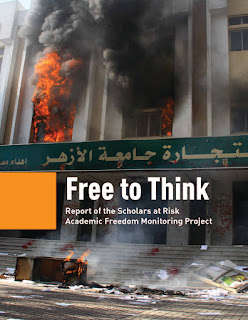(Pix © Larry Catá Backer 2015)
To what extent do unit administrators contribute to rising cultures of retaliation in the contemporary public university? To what extent are faculty protected against the sometimes subtle use of discretionary authority to coerce behavior? These are questions that are increasingly asked by faculty but rarely answered by senior administrators.
The usual discourse of accountability and constraints on administrative discretion tends to focus on senior administrators. But accountability issues at most public universities ought to extend beyond senior administrators. Though senior administrative organs adhere to formal policies that appear to constrain the behaviors of unit administrators (deans, chancellors, and other middle managers with direct supervision of faculties), it sometimes appears that they also seek to advance a blank-check governance policy for their unit heads (including deans, department heads and chancellors of campus organizations), in fact if not in form. One might think that these de facto policy choices might well violate university ethics codes and they certainly diffuse accountability to the point where it is formally well structured but functionally dead. Yet the principal effect of these rules may be cover for protecting rising cultures of retaliation whose principal characteristic is tolerating substantially unconstrained discretion by unit administrators with respect to the management of their unit bounded only by complex whistle blower related anti retaliation provisions that do little to soften the retaliatory effects of lower level administrative decision making.
In many cases issues of accountability, transparency, complicity, retaliation and ethics are tied closely together. Nowhere is the connection between these stronger, perhaps, than when deans interact with their faculties, faculties that retain (at least formally) some shared governance responsibilities.
This post considers these issues in the context of a hypothetical that might be posed by university faculty organizations to their senior administrators. It suggests the answers that these senior administrators ought to give, and, lamentably, those that they are likely to make.
Question 1) Can the Dean prevent us from asking questions of a department head candidate without administrative surveillance?
Question 2) a) Is it appropriate for a Dean to send out an e-mail encouraging faculty to sign a public letter/petition? b) Should a Dean be engaged in activism when it could alienate many faculty and stakeholders, c) Should a Dean be encouraging faculty to sign petitions, which that Dean can see and then, potentially, hold against faculty who did not sign the petition?
























